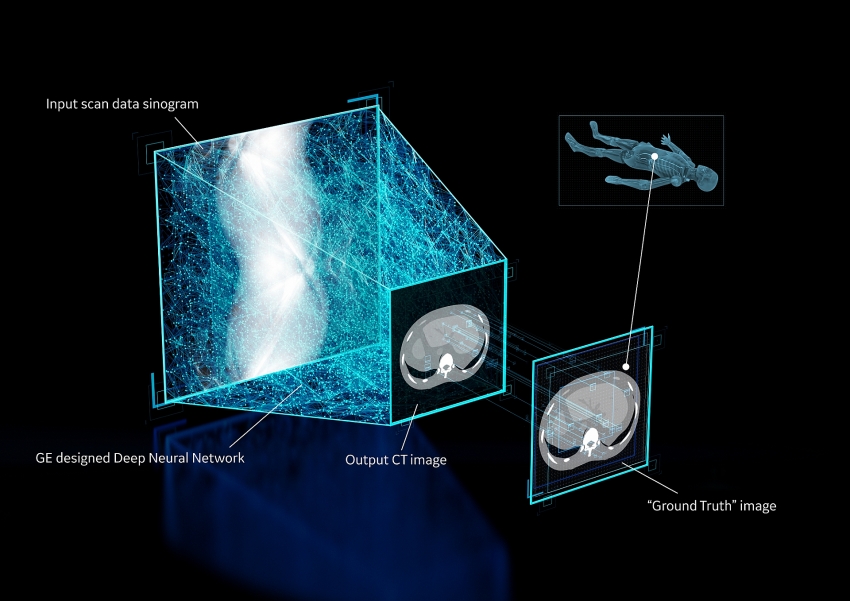GE Healthcare aims to support healthcare development in Vietnam
 |
| The Command cetre of GE Healthcare |
GE Healthcare continues to look for opportunities to partner with local stakeholders to introduce advanced healthcare technologies and support the rising demand for healthcare services in Vietnam.
It showcased its technologies and solutions at the annual Hospital Management Asia conference on September 11-12, 2019, taking place in Hanoi. GE Healthcare’s offerings are focused on harnessing the power of precision health and digital tools to drive personalised and integrated healthcare.
GE Healthcare has successfully developed AI solutions at multiple levels, offering comprehensive healthcare systems and personalised services which could help improve efficiency and improve patient outcome. Machines with built-in AI capabilities would automate the imaging process and increase precision while saving time at individual levels.
At the department level, GE Healthcare uses AI to streamline workflow in an entire radiology department. This results in less waiting time, higher productivity, and increasing revenue. At the highest levels of the hospital, AI is used in predictive analytics to better manage the patient flow through the hospital and help improve efficiency within the available infrastructure.
 |
| Deep-learning powered image reconstruction for CT |
Some of the notable built-in AI solutions introduced by GE Healthcare include an automated workflow tool in an MR scanner to help reduce redundant, manual steps; a tool in an ultrasound system that automates the process of measuring the fetal brain by aligning the system automatically and can help reduce keystrokes by more than 75 per cent; and a deep learning image reconstruction tool that helps improve reading confidence in a wide range of clinical applications such as head, whole body, and cardiovascular, for patients of all ages.
Command centres are another innovation that delivers comprehensive improvement in ambulance pickup, emergency department, hospital admissions, patient transfers from other hospitals, operating room, and patient discharges.
Implemented at the Johns Hopkins Hospital in 2016, GE Healthcare’s command centre has shown benefits such as quicker pick-up of patients from outside hospitals by 63 minutes sooner or assigning a bed more than 30 per cent faster; opening 16 additional inpatient beds without actually opening physical beds, improving the ability to accept patients with complex medical conditions from other hospitals around the region and the country by 40 per cent.
“Technology alone is not sufficient to provide sustainable improvement to healthcare delivery in Vietnam and other emerging markets. This requires investment in training and education of the local workforce to successfully operate and service devices and build capacity at the front line of healthcare,” said Son Pham, Vietnam country leader for GE Healthcare.
“Healthcare as a whole is moving towards an approach to care that is integrated, efficient, and personalised to each patient. Our goal is to deliver increased capacity, improved productivity, and better patient outcomes for our customers,” said Professor Dr Mathias Goyen, chief medical officer for GE Healthcare Europe. “We can partner with suitable local providers on solutions that integrate medical technology, consulting services, clinical education care pathway expertise, infrastructure support, and financing.”
Prof Goyen is scheduled to conduct a workshop for approximately 80 of the region’s hospital C-suites on the future of AI in the radiology department and how it could support faster and more accurate diagnosis, helping to balance the lack of resources in many markets.
Vietnam is one of the fastest-growing economies in Southeast Asia, with around 7 per cent annual growth in the last two years and projected growth of around 6.5 per cent in 2019. Income growth and changing demographic characteristics have contributed to a fast reduction of infectious diseases, but at the same time making Vietnamese prone to chronic, noncommunicable diseases.
This notable shift in health problems requires a comprehensive adaptation of Vietnam’s healthcare system, from the training of doctors to upgrading of hospital facilities, to be capable of handling the specialised treatment of chronic diseases.
To complement the technologies that it is bringing into Vietnam, GE Healthcare has led Continuous Education and Training courses for radiologists, radiographers, sonographers, and other clinical practitioners to support Vietnam’s local workforce in successfully operating and keeping up to date with the latest in medical innovations.
GE Healthcare is the $19 billion healthcare business of GE (NYSE: GE). As a leading provider of medical imaging, monitoring, biomanufacturing, and cell and gene therapy technologies, GE Healthcare enables precision health in diagnostics, therapeutics, and monitoring through intelligent devices, data analytics, applications, and services.
With over 100 years of experience in the healthcare industry and more than 50,000 employees globally, the company helps improve outcomes more efficiently for patients, healthcare providers, researchers, and life sciences companies around the world.
What the stars mean:
★ Poor ★ ★ Promising ★★★ Good ★★★★ Very good ★★★★★ Exceptional
Related Contents
Latest News
More News
- Addressing Vietnam's energy challenges with aeroderivative gas turbines (February 28, 2023 | 09:33)
- How to sprint ahead in 2023’s worldwide energy priorities (February 08, 2023 | 13:55)
- Boosting Vietnam's grid stability through gas turbine technology (November 22, 2022 | 20:02)
- Healthcare trio collaborates to provide thousands of free breast scans (October 27, 2022 | 17:19)
- GE Healthcare's vision for AI-backed radiology (September 29, 2022 | 11:53)
- GE brand trio to shape the future of key industries (July 19, 2022 | 15:35)
- GE unveiling brand names and defining future (July 19, 2022 | 15:16)
- GE: the shortest route towards sustainability (July 18, 2022 | 08:00)
- Be proactive in an uncertain world (May 20, 2022 | 11:40)
- GE secures first 9HA combined cycle power plant order in Vietnam (May 16, 2022 | 17:06)

 Tag:
Tag:

























 Mobile Version
Mobile Version